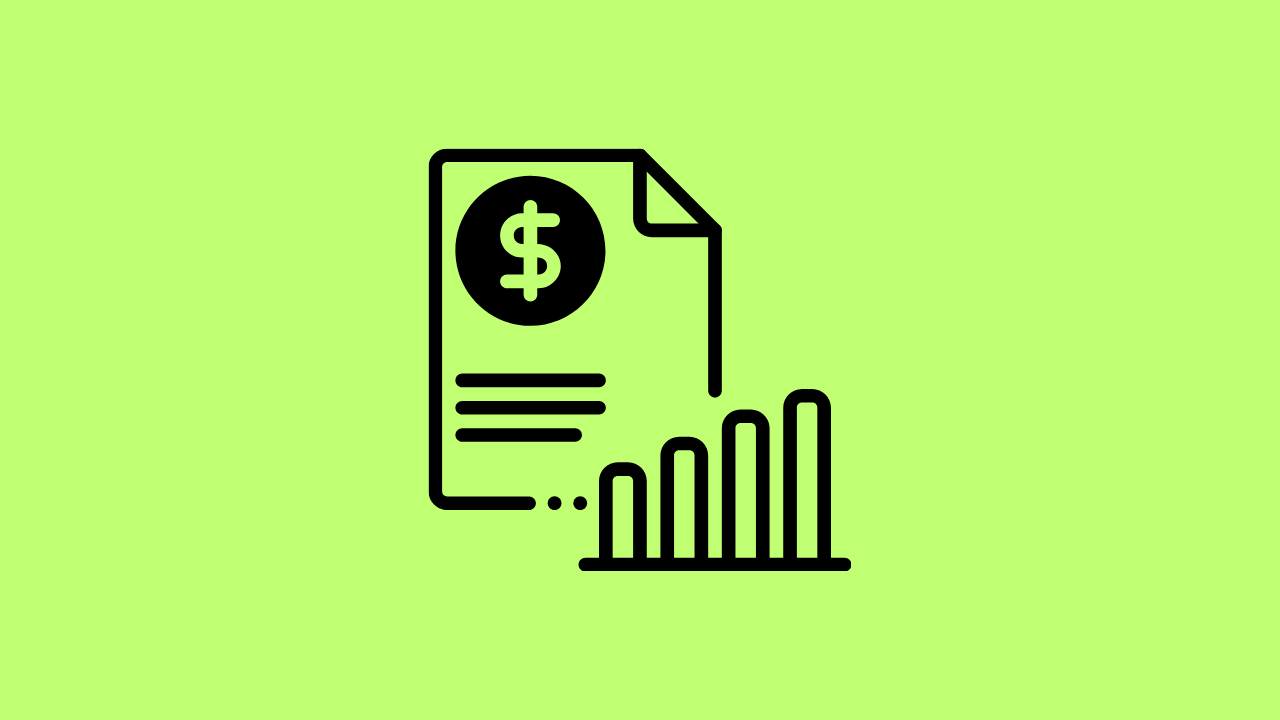Introduction
Artificial intelligence (AI) is transforming the finance sector, offering innovative solutions that enhance trading, improve risk management, and provide deeper customer insights. As we move into 2024, several AI tools are leading the way in revolutionizing financial services.
Benefits of AI in Finance
AI integration in finance brings numerous benefits:
- Enhanced Trading: AI algorithms can analyze vast amounts of data to make informed trading decisions.
- Improved Risk Management: AI helps in identifying and mitigating risks through predictive analytics.
- Customer Insights: AI tools provide valuable insights into customer behavior, enabling personalized services.
Top 10 AI Tools for Finance
Here’s a detailed look at the top 10 AI tools making significant impacts in finance:
1. ChatGPT / Claude / Gemi
AI language models like ChatGPT, Claude, and Gemini are increasingly used by finance professionals for tasks like report summarization, variance analysis, forecasting, and creating financial narratives. They can interpret Excel data, draft management commentary, or automate repetitive research tasks. When paired with structured prompts, these tools can act as intelligent FP&A assistants or financial research copilots.
Best for:
Finance professionals and analysts who want on-demand AI assistance for reports, analysis, and scenario planning.

2. Datarails FP&A Genius
Datarails’ FP&A Genius automates financial planning and analysis for small and mid-sized companies. It connects Excel-based models to live business data and uses AI to generate real-time forecasts, dashboards, and variance explanations. With narrative intelligence, it also drafts insights automatically — saving hours of manual reporting each month.
Best for:
FP&A teams seeking AI-driven forecasting, reporting, and insight generation.
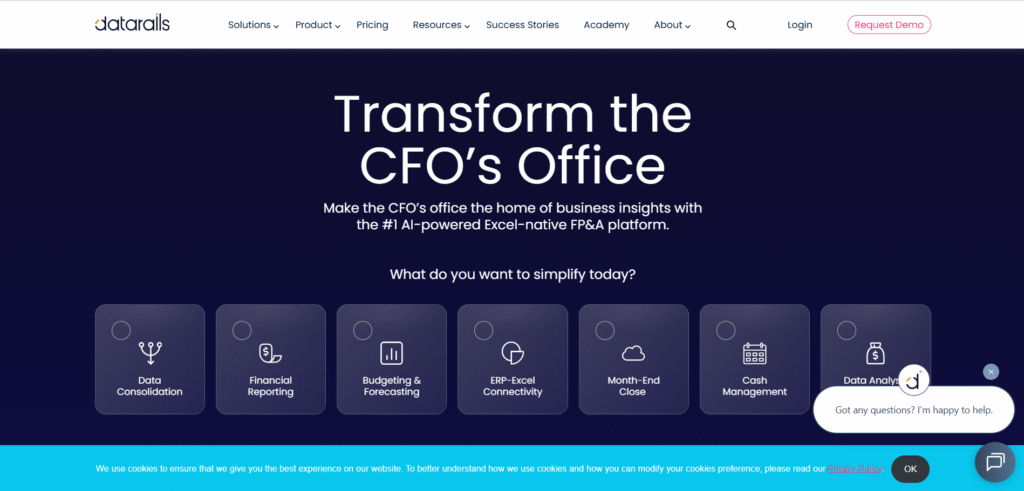
3. Domo
Domo is a cloud-based business intelligence and analytics platform that leverages machine learning to visualize financial performance and predict future outcomes. It connects data from ERPs, CRMs, and spreadsheets, helping CFOs monitor cash flow, budgets, and KPIs in real time. AI-powered alerts flag anomalies and trends proactively.
Best for:
CFOs and data-driven leaders who want real-time analytics and predictive dashboards.
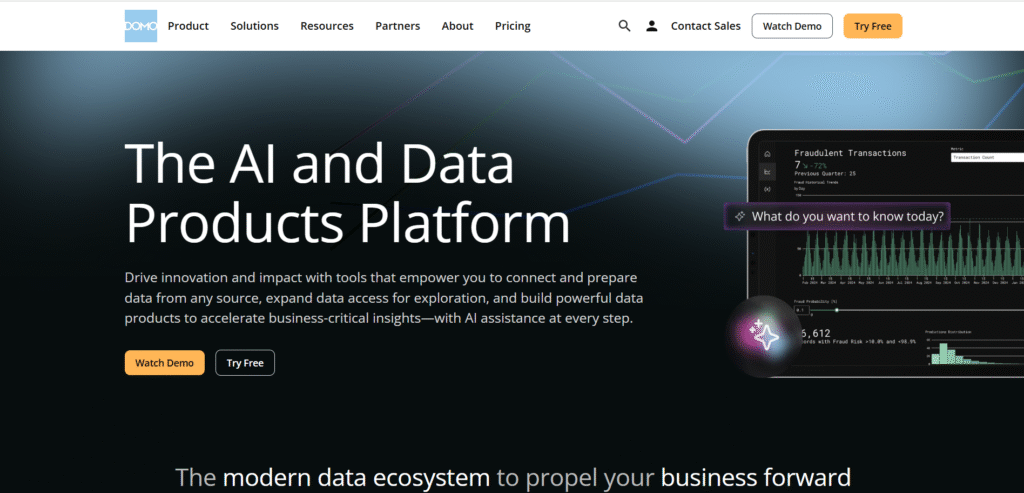
4. Stampli
Stampli focuses on accounts payable automation. Its AI extracts invoice data, detects duplicates, matches purchase orders, and routes approvals automatically. The platform’s conversational interface lets teams collaborate on invoices, reducing payment delays and errors. It also integrates with popular ERPs like NetSuite and QuickBooks.
Best for:
Finance and accounting teams needing AI-driven invoice management and AP automation.
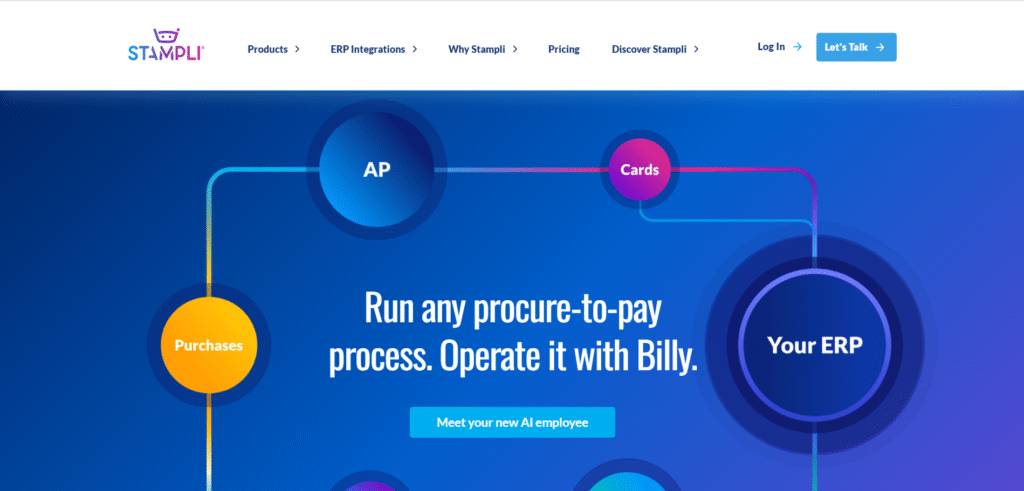
5. Vena Insights
Vena Insights brings predictive analytics and financial modeling to budgeting, forecasting, and performance tracking. Its AI engine identifies anomalies, uncovers patterns, and helps teams model multiple financial scenarios. Integrated with Excel and cloud data sources, it enables modern FP&A without disrupting existing workflows.
Best for:
Enterprises and finance departments wanting AI-enhanced budgeting and forecasting within Excel.
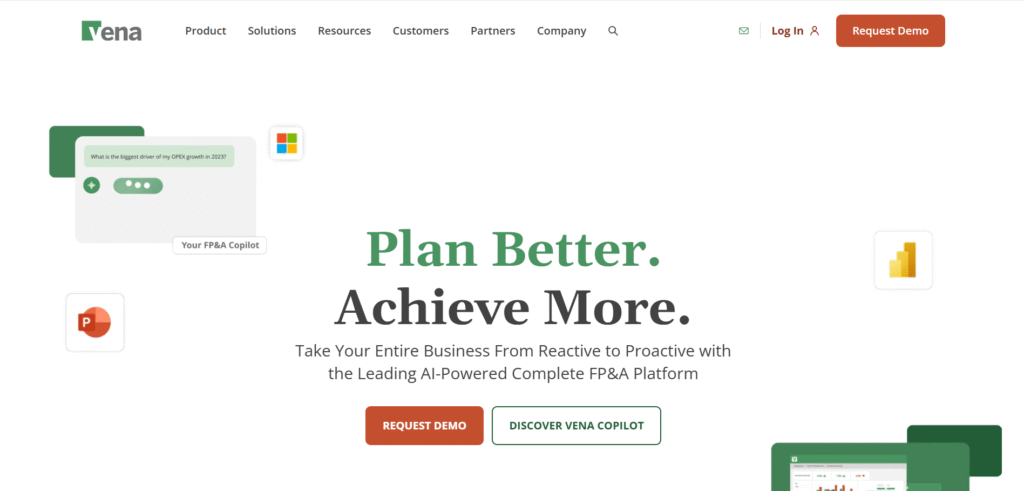
6. Planful Predict
Planful Predict uses machine learning to generate forecasts, detect trends, and warn about potential deviations in key financial metrics. It integrates directly into the Planful FP&A suite, empowering finance teams to automate scenario planning and focus on strategic decision-making rather than manual consolidation.
Best for:
FP&A teams that want predictive forecasting integrated into their planning suite.
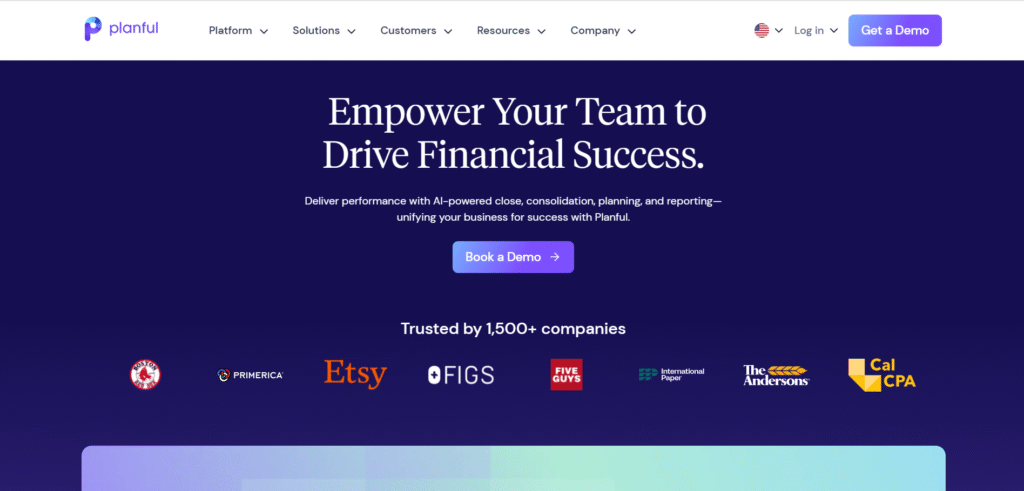
7. Stack AI
Stack AI allows finance teams to create custom AI agents that can automate complex workflows like document parsing, compliance verification, and data extraction. It’s especially useful for automating tasks such as reading invoices, analyzing financial statements, or monitoring transactions for anomalies.
Best for:
Finance operations teams looking to build AI agents for repetitive, data-heavy workflows.
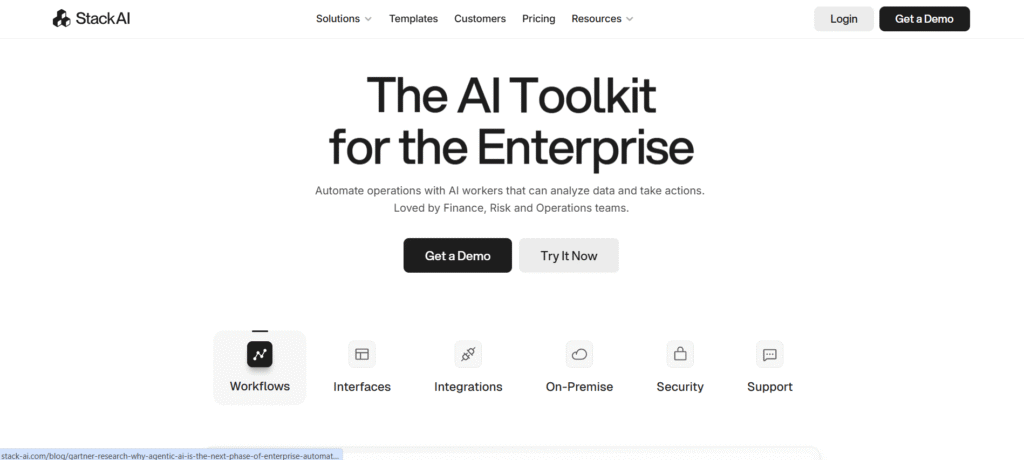
8. BlackLine
BlackLine specializes in AI-powered financial close and reconciliation automation. It matches transactions, identifies anomalies, and reduces the risk of human error during period-end close. Its intelligent automation helps ensure compliance, audit readiness, and efficiency across global finance teams.
Best for:
Enterprises seeking error-free, automated account reconciliation and close processes.

9. AppZen
AppZen is an AI auditing platform that automates expense report review, invoice verification, and compliance checks. Using machine learning, it flags potential fraud, duplicate submissions, and policy violations before reimbursements are processed. Its “autonomous audit” feature saves finance teams countless hours of manual review.
Best for:
Finance controllers and auditors focused on AI-driven expense management and compliance.
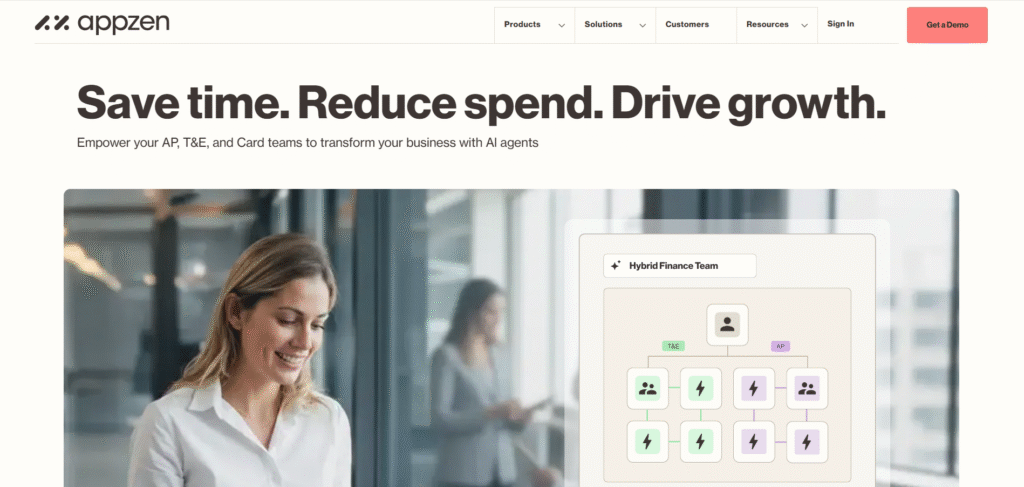
10. Coupa
Coupa uses AI and “community intelligence” to optimize spend management and procurement. Its virtual assistant, Coupa AI Navi, provides real-time insights on sourcing, budgeting, and supplier performance. The platform’s predictive models forecast demand, optimize purchasing, and reduce procurement waste across global organizations.
Best for:
Procurement and finance leaders aiming for data-driven spend optimization and forecasting.
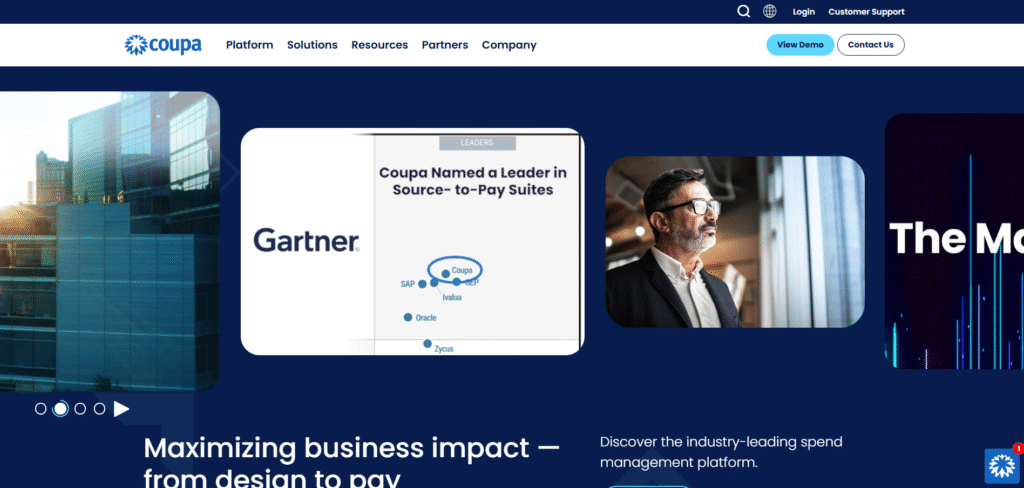
Comparative Analysis of AI Tools
To understand the strengths and limitations of each AI tool, here’s a comparative analysis based on features, benefits, and potential limitations:
| Tool | Core Strength | Ideal For | Unique Edge |
|---|
| ChatGPT / Claude / Gemini | Generative AI for analysis | Analysts & CFOs | Conversational, flexible |
| Datarails FP&A Genius | FP&A automation | SMB finance teams | Excel-native AI forecasting |
| Domo | Business intelligence | Large enterprises | Predictive dashboards |
| Stampli | Accounts payable | Accounting teams | AI invoice collaboration |
| Vena Insights | Predictive analytics | FP&A | AI scenario modeling |
| Planful Predict | Forecasting automation | Enterprises | Built-in ML forecasting |
| Stack AI | Custom AI automation | Finance ops | AI agents for documents |
| BlackLine | Financial close automation | Controllers | Reconciliation & anomaly detection |
| AppZen | Expense auditing | Auditors | AI policy compliance |
| Coupa | Spend management | Procurement | AI spend optimization |
AI in Trading and Investment
AI has revolutionized trading and investment by enabling the analysis of large datasets to identify trends and make predictions. For instance, Kensho’s real-time market analysis helps traders make informed decisions quickly, while Numerai’s crowdsourced predictions leverage collective intelligence for more accurate forecasts.
AI in Risk Management
AI tools like Ayasdi and Zest AI are crucial in risk management. Ayasdi’s machine learning algorithms identify patterns and anomalies that may indicate risks, while Zest AI’s predictive models assess credit risk more accurately, reducing default rates and improving loan approval processes.
AI in Customer Service
AI enhances customer service in finance through chatbots and personalized services. Betterment’s robo-advisor provides personalized financial advice, while AI-driven chatbots handle customer inquiries, improving response times and customer satisfaction.
Challenges and Ethical Considerations
While AI offers many benefits, it also presents challenges and ethical considerations:
- Data Privacy: Ensuring the security and privacy of sensitive financial data is critical.
- Algorithmic Bias: AI models can perpetuate biases if trained on biased data.
- Regulatory Issues: Compliance with financial regulations is essential to avoid legal repercussions.
Addressing these challenges requires robust data governance, ethical AI practices, and adherence to regulatory standards.
Future Trends in AI Finance
The future of AI in finance is promising, with emerging technologies and innovations on the horizon:
- AI in Financial Forecasting: Improving the accuracy of financial predictions.
- Blockchain and AI Integration: Enhancing security and transparency in financial transactions.
- AI for ESG Investing: Using AI to assess environmental, social, and governance factors in investments.
These trends will continue to transform the finance sector, making it more efficient, secure, and customer-centric.
FAQs about AI Tools in Finance
What are the benefits of AI in finance? AI enhances trading, improves risk management, and provides deeper customer insights, leading to better financial decision-making.
How does AI improve trading? AI analyzes large datasets to identify trends and make informed predictions, improving trading strategies and outcomes.
What challenges do AI tools face in finance? Challenges include data privacy, algorithmic bias, and regulatory compliance.
How does AI contribute to risk management? AI identifies patterns and anomalies in data, helping financial institutions detect and mitigate risks more effectively.
What future trends are emerging in AI finance? Emerging trends include AI in financial forecasting, blockchain integration, and ESG investing.
Are AI tools expensive? The cost of AI tools varies, but they often provide significant ROI through improved efficiency, reduced risks, and better customer service.
Conclusion
AI tools are revolutionizing the finance sector, offering innovative solutions for trading, risk management, and customer service. By understanding and leveraging the top AI tools in finance, financial professionals can stay ahead in this dynamic field, ensuring better decision-making and improved outcomes.
